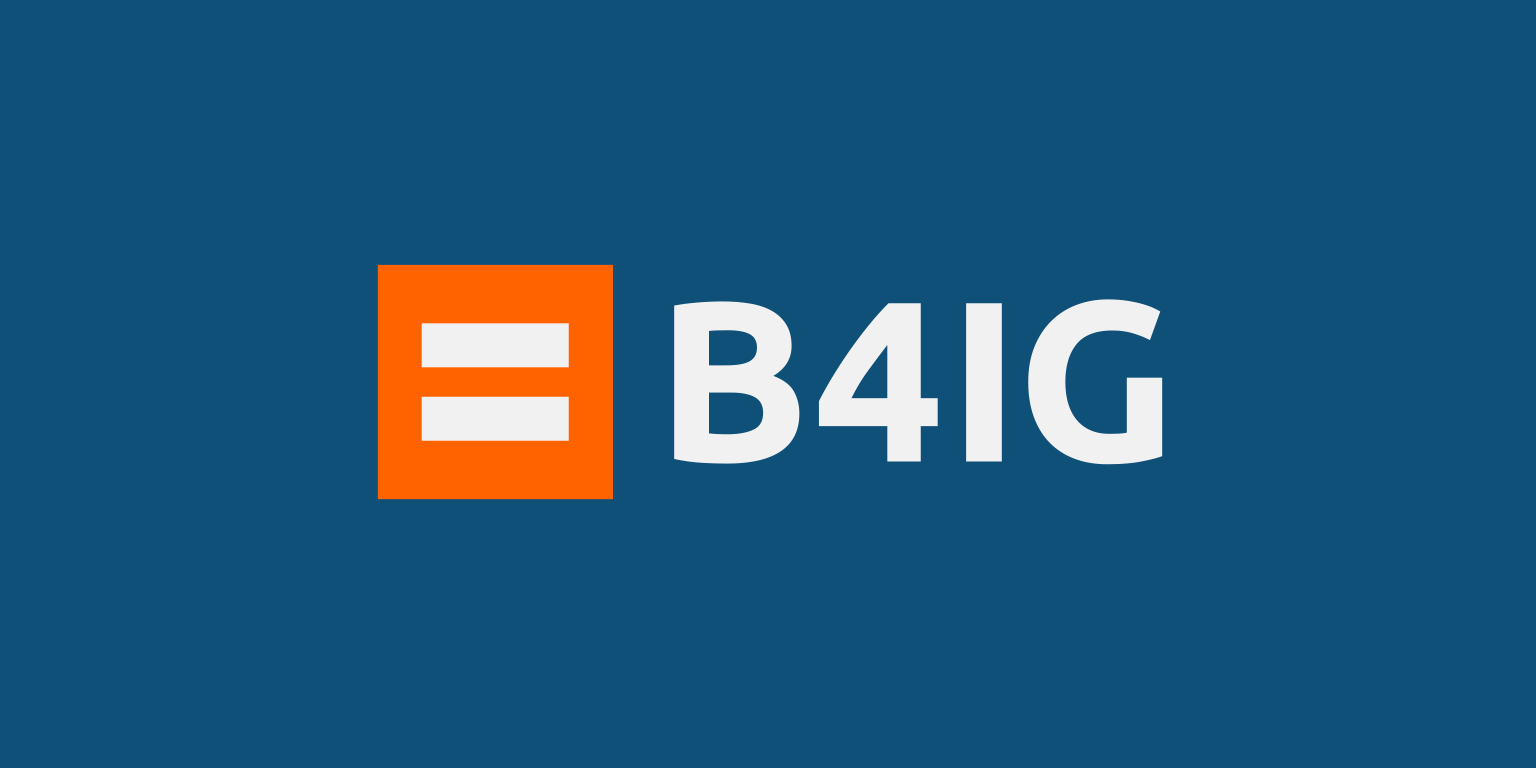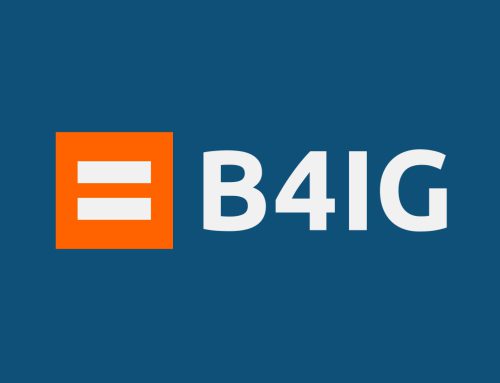Project Description
Paris, May 8, 2020
In response to the COVID-19 crisis, the 38 members of the Business for Inclusive Growth (B4IG) platform today announced collective financial support and facilities totaling more than €38 bn and launched a collective call for an inclusive recovery.
The numbers in brief:
- Donations (funds or products): €885 million
- Companies financial commitments to their ecosystem (clients, suppliers, communities…): €1.9 billion
- Financial institutions funds made available in relief efforts: €35.5 billion
- Units of Protective & medical equipment: 120 million units
B4IG more critical than ever.
The Business for Inclusive Growth (B4IG) coalition was launched at the G7 summit in Biarritz on August 23, 2019, spearheaded by Danone and powered by the OECD. Today, 38 multinationals have signed the B4IG Pledge with a common goal: fighting against inequalities.
B4IG’s work is focused on advancing human rights in company value chains, building inclusive workplaces and strengthening inclusion in companies business ecosystems. Underpinning this work is an effort to develop key performance indicators on inclusive growth in business. The OECD is supporting, with its evidence and analysis, all strands of the work. Today, the work and commitment of the companies that compose B4IG is all the more important, given the global crisis, and its asymmetric effects, hitting the most vulnerable harder. The coalition is rapidly adapting these workstreams and accelerating collaboration to respond to the current crisis, the magnitude of which is only beginning to come to light. This collaboration will also become concrete in 2020 through the B4IG incubator which will accelerate 12 inclusive growth projects from B4IG members, advancing the coalition’s collective effort to fight inequality.
The OECD’s analyses confirm that the global health crisis comes with unprecedented financial, economic and social repercussions in the 21st century. COVID-19 is a crisis taking a toll on human lives, but it has also sparked the largest financial, economic and social crisis that many people will see in their lifetimes. With the evidence of broadening inequalities, the OECD is urging governments and businesses, in confronting the health crisis and its economic fallout, to make choices that enable individuals, families, and communities not only to regain health, but to emerge from the crisis onto solid economic and social ground. For the first time, people are looking almost equally at government (63%) and business (62%) to act, according to the 2020 Edelman Spring Trust Barometer. B4IG members are responding to this call, both through concrete actions and by calling on the public and private sectors to embrace steps towards an inclusive recovery.
Major financial support and investment in communities hit by the Covid outbreak
The context of this major crisis gives B4IG even more relevance and meaning. In response, B4IG companies have dedicated over €38bn euros in relief plans or support of their employees, communities, clients and suppliers.
In cooperation with governments, banks in the B4IG coalition will support financial relief efforts for more than €35bn. Other B4IG companies committed €1.9 bn to support their ecosystem of consumers and suppliers. They spent more than €885m in donations since the start of the outbreak and provided medical protective equipment up to 120 million units.
These contributions supported actions corresponding to the coalition’s commitments and echo the priority needs identified by OECD member states to promote a people-centered response to the crisis:
Supporting Inclusive Business Ecosystems and Value Chains
- Providing essential financial assistance, loans and liquidity to vulnerable businesses, clients and suppliers. Financial institutions are very active: Goldman Sachs provided more than €460m as emergency loans to small businesses, Legal & General €297m in pension de-risking transfers. In Italy, its second domestic market, Credit Agricole rolled out a €10bn relief programme made of business loans, treasury facilities, and a moratorium on loan payments for SMEs and retail banking customers. In the food industry, €300m has been made available by Danone to support 15,000 of its small and medium business partners.
- Providing direct assistance to vulnerable groups to cope with the social and economic crisis by providing food or essential goods and services. For example, Unilever is providing soap and hand sanitizer worth €50m to the COVID Action Platform of the World Economic Forum, as well as another €50m for campaigns, education and products to support handwashing through associations and partners. Sodexo continues to provide students access to food by distributing 300,000 meals a day.
- Helping to overcome the health crisis by funding healthcare centers, hospitals or research institutes working to find a cure or treatment, providing emergency medical supplies and other critical health-related essentials. For example, Johnson & Johnson has announced a lead vaccine candidate for COVID-19 and has committed to supply one billion vaccines worldwide for emergency pandemic use.
Supporting Inclusive Workplaces
- Supporting employees’ earnings and jobs through securing wages during the crisis, appropriate re-arrangements of work schedules together with relevant public interventions. For example, to help put people back to work quickly in areas of new opportunity, Accenture created a virtual B2B initiative to connect companies that urgently need people with those that have people available.
- Ensuring the continuity of supply and provisions of essentials – such as water, food and energy. For example, Engie has refunded low-income families for 2 months of energy fees, reaching 600,000 households.
B4IG members have been sharing their individual responses within the coalition and plan to collectively expand or amplify some of these actions through collaboration between and among businesses, philanthropy and governments.
Call for an Inclusive, Green and Resilient Recovery
As a global private sector coalition powered by the OECD, B4IG member companies are also calling on businesses and governments to work together to rethink and readjust economic models, curbing the inequalities that have been rising for decades and are going to be exacerbated by the crisis. At the beginning of the crisis, 40% of the households in the OECD were vulnerable, risking poverty if income was forgone for three months, and according to the International Labor Organization forecasting model, global working hours declined in the first quarter of 2020 by an estimated 4.5% (equivalent to approximately 130 million full-time jobs).
Together, governments and businesses can build economic models that maximize social and environmental benefits to society and generate sustainable and resilient growth for all.
The Business for Inclusive Growth Pledge defines a 360-degree approach to inclusive business. This includes actions that will be critical in the months and years to come – from ensuring the access and affordability of basic products and services to upskilling employees so they can adapt to new economic realities to doubling down on efforts to combat forced labor. Together, the members will work to mainstream this approach so that it becomes a roadmap for business during the rebuild and recovery phase that awaits us.
To conclude:
Emmanuel Faber, Danone CEO and chairman of B4IG Board “At the time we launched this coalition last August, no one could imagine we’ll be facing a situation such as the Covid-19. With this sanitary crisis comes the economic one and if we are not collectively softening its effects, an unprecedented social crisis will follow. The role of the private sector in responding to this crisis and driving an inclusive and green recovery is fundamental. But no company can face global issues alone. Collaboration has never been as critical. The members of B4IG have shown real leadership to date; I am convinced that by working together and with governments, we can go much further. We must capitalize on this moment to build the companies – and societies – of the future.”
Gabriela Ramos, OECD Chief of Staff and G20 Sherpa “B4IG was a good idea before the COVID-19 crisis, and it is even more important after COVID. Given its asymmetric impacts, and the harsh effect on the most vulnerable, COVID is a wakeup call to upgrade our efforts and reduce inequalities of income and opportunities. B4IG is responding to this call. Disadvantaged children, women and low-income workers are carrying the heaviest burden of the crisis. We have a responsibility to support them. It is a moral imperative, but it is also the only way to keep our societies going and to build a more balanced future. The OECD is proud to support these efforts and to join forces with the private sector, bringing our analytical capacity, and our commitment with a growth model that puts people’s well-being and the planet at the centre. We will continue working with B4IG, as part of our Inclusive Growth initiative, as well as with governments, majors and foundations committed to this cause.”
Marie-Ange Debon Interim Director of B4IG , “As interim director of B4IG for these past weeks, I have been impressed by the spirit of solidarity, cooperation and reactivity of all the members of the B4IG Coalition who have implemented multiple initiatives to support their employees and their ecosystem partners.»




